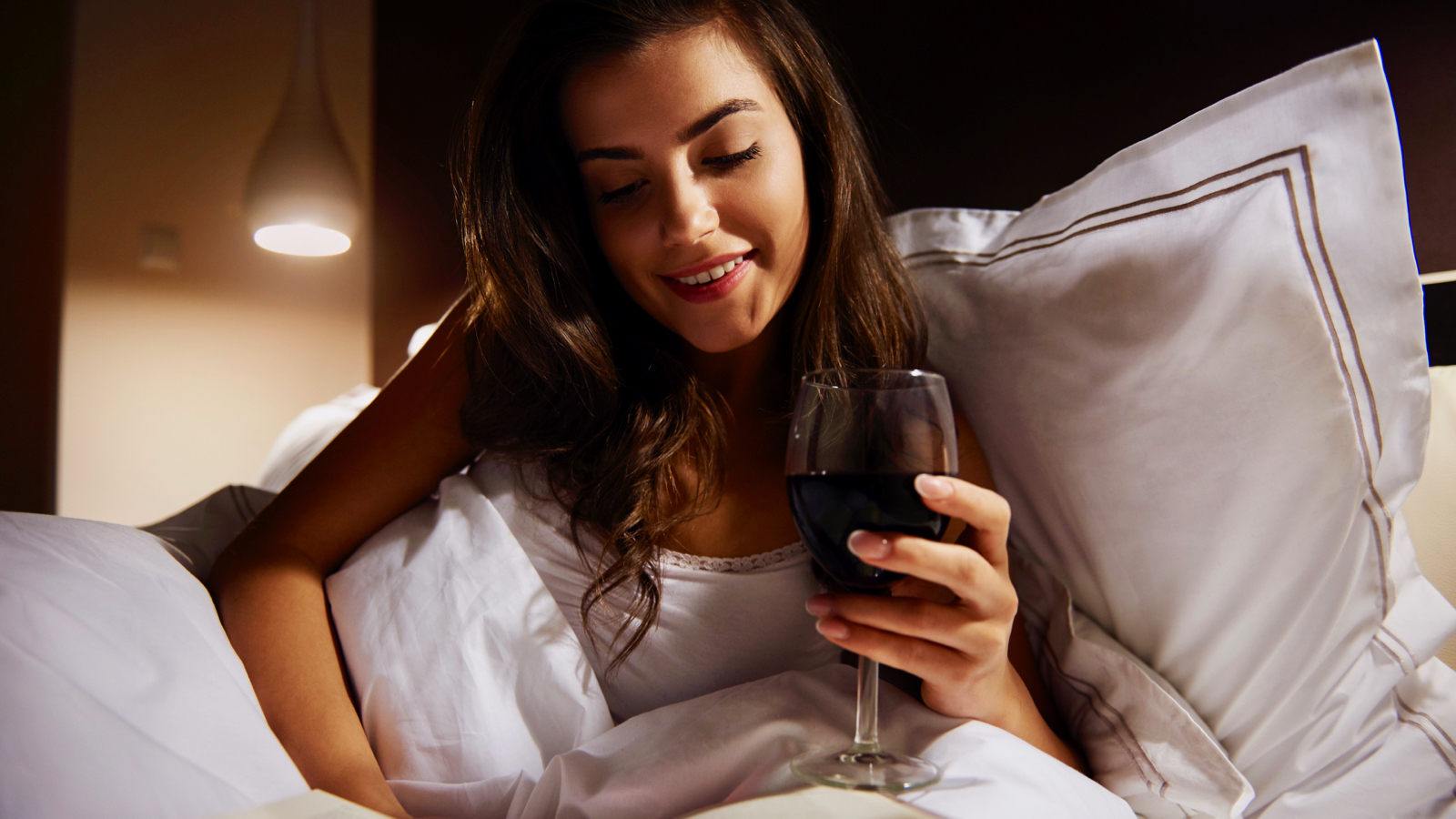By Lexi Williams Posted on November 20, 2017
Insightful article regarding what grapes contain higher levels of melatonin and how many nightly glasses can contribute to a healthy slumber – Marla Priest
For most people, a glass of wine before bed sounds like a luxurious nighttime ritual—it’s delicious and it gets you in the mindset for relaxation. Anyone who’s had a few drinks before hitting the hay can tell you about alcohol’s power to put you to bed, but its effects don’t end once you shut your eyes. Is that nightcap a good or bad idea?
Here, Wine Spectator rounds up the latest scientific research to break down what wine lovers need to know about alcohol and sleep.
Wine Can Help You Fall Asleep …
Tossing and turning? Whether it’s stress from work, the latest binge-worthy show or a chronic condition that’s keeping you up at night, you’re not alone. About 70 million Americans have some sort of trouble sleeping, according to the American Academy of Sleep Medicine. For many, alcohol is an accessible, and often appealing, option for relief.
Studies have shown that drinking before bed reduces sleep latency, meaning it can help bring on sleep more quickly than usual. This is thanks to alcohol’s sedative effects, which range in intensity depending on one’s blood-alcohol content (BAC). However, several studies have also shown that people can develop a tolerance to these sedative effects in as few as three nights. Eventually your body will need more alcohol to experience sleep-inducing effects, which can lead to even bigger problems, such as alcohol dependency.
As with many other health issues, there’s a possibility that the type of alcohol you drink could also make a difference. In 2006, a study published in the Journal of the Science of Food and Agriculture revealed that several wine grapes are rich in melatonin, a hormone that regulates sleep.
Read full article here….

